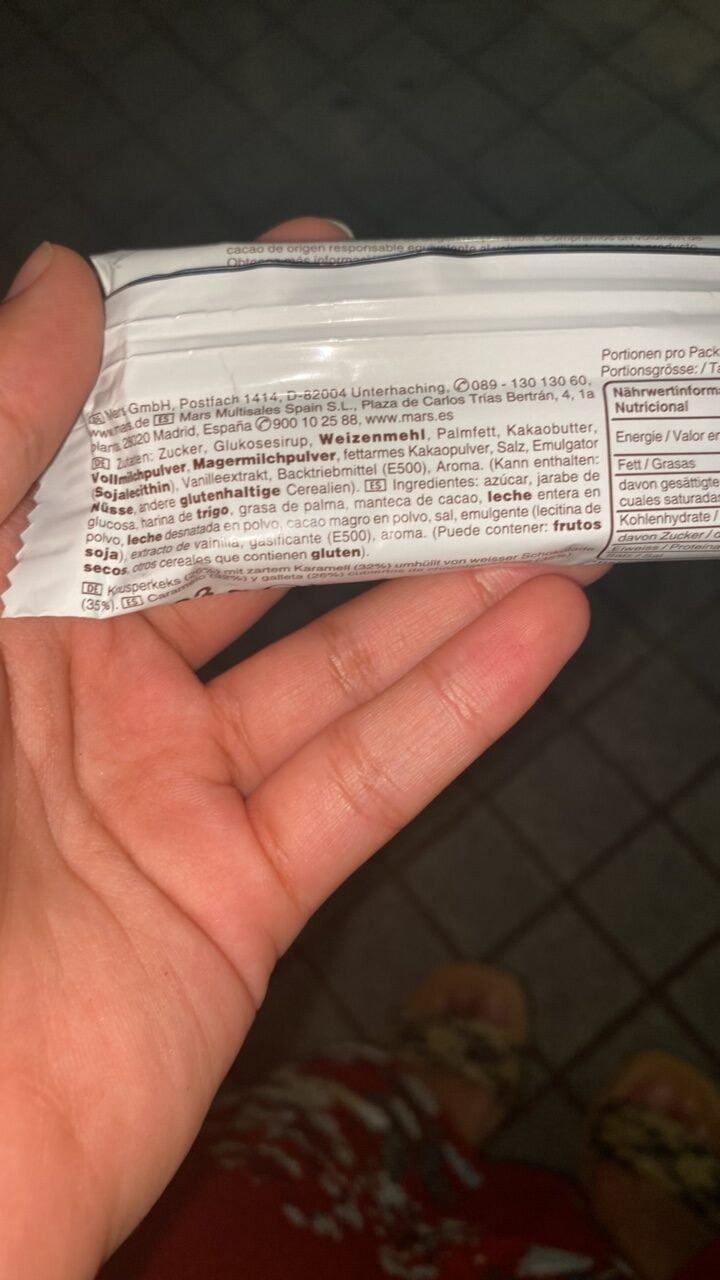
Barcode: 5000159556804
kusperkeks
HALAL
📝 Reason: While most ingredients in this product are plant-based or dairy and considered Halal, a few like ’emulsifier’, ‘vanilla extract’, and ‘aroma’ are marked Doubtful as they can be sourced from either Halal or Haram sources or involve alcohol as a solvent. When any ingredient is Doubtful, the whole product is considered ‘Doubtful’ in Islamic dietary law (Quran 5:3, IFANCA guidance).
🏷️ Category: Cookies, Snacks
📄 Certificates: Vegetarisch
Ingredients:
Details
Understanding the Halal Status of Kusperkeks
Kusperkeks, a popular cookie brand, has garnered attention for its delicious taste and appealing texture. As consumers increasingly focus on dietary restrictions, questions about its Halal status arise. This post will delve into the components that make up Kusperkeks, analyzing each ingredient to determine their Halal status according to Islamic dietary law.
Halal Status Overview
Kusperkeks is affirmed to be HALAL, which means it complies with Islamic law – however, caution is advised due to certain ingredients that could be considered of doubtful Halal status. Ingredients such as emulsifiers, vanilla extract, and aroma can either derive from Halal or Haram sources, adding complexity to the overall Halal assurance.
Ingredient Breakdown
Let’s analyze each ingredient in Kusperkeks:
- Sugar: Generally Halal and plant-based, sugar may occasionally be processed with bone char, although this is rare, especially in Europe. More details can be found here.
- Glucose Syrup: Commonly derived from corn or wheat, glucose syrup has no known animal or alcohol sources. Its Halal status is confirmed here.
- Wheat Flour: A staple in many baked goods, wheat flour is purely plant-based and always Halal. For more insights, check this link.
- Palm Fat: Derived from palm trees, this ingredient has no Halal concerns and is also plant-based. More information can be found here.
- Cocoa Butter: A vegetable fat extracted from cocoa beans, cocoa butter is always Halal as well. For further details, visit this page.
- Whole Milk Powder: Generally Halal, but it’s best when sourced from cows that don’t have any other animal-derived additives. More about this can be read here.
- Skimmed Milk Powder: Halal in nature and derived from dairy.
- Fat Reduced Cocoa Powder: As it’s obtained from cocoa beans, it qualifies as Halal, confirmed here.
- Salt: An inorganic mineral, salt is universally Halal.
- Emulsifier: This is where the complexity arises. Emulsifiers can be derived from either plants or animals, and if sourced from animals without Halal certification, their status becomes doubtful. It’s advisable to use this guide.
- Soy Lecithin: Sourced from soybeans, it’s confirmed to be Halal. More info on this can be found here.
- Vanilla Extract: A key flavoring agent which may sometimes include alcohol as a solvent—thus making its Halal status doubtful unless labeled alcohol-free. More information is found here.
- Raising Agent: Typically safe and Halal, especially combined with E500 (Sodium Carbonate).
- E500: Sodium Carbonate, confirmed to be plant mineral origin and permitted in Halal products here.
- Aroma: Can be complex as it might use alcohol in its formulation unless stated otherwise. For clarity on this, see this resource.
Brand & Certification Context
Kusperkeks operates within the broader category of cookies and snacks, appealing to a wide audience looking for tasty treats. While it is categorized as vegetarian, consumers should remain vigilant regarding the ingredient sources. In the absence of explicit Halal certifications from the manufacturer, one should exercise caution when ingesting products with doubtful ingredients.
Conclusion
In conclusion, while Kusperkeks is largely seen as Halal, certain ingredients raise concerns for those adhering strictly to Halal standards. For full confidence in your dietary choices, closely checking packaging and looking for explicit Halal certification is advised.
